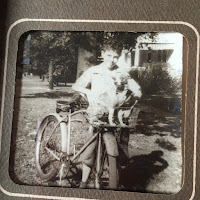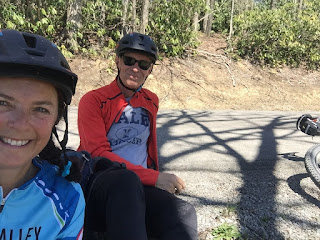Last week we spent in Omaha, Nebraska, which just goes to
show that you never know where life will take you to work on neonatal survival
in Kenya.
Over our years at Kijabe we occasionally came in contact
with the government hospital about an hour west of us, Naivasha sub-county
hospital (NSCH). Located in a congested
town between the highway and the lake, this hospital serves a catchment area of
nearly half a million people. Almost a
decade ago a retired Labor and Delivery nurse from Omaha was in the area with
her husband, whose company sells irrigation systems to the flower farms around
the lake. She toured the hospital and
found the conditions for women who work on the farms appalling. And being a can-do person of compassion, she
set about to develop a plan to help. In
the process there are now two “Friends of Naivasha Hospital” organizations, one
in Kenya and one in Nebraska, a new maternity wing was built, and containers of
beds and incubators made their way across the ocean. More importantly, she then brought in a connection
with international Rotary grants and a very gifted academic pediatrician from
the University of Utah to inspire the Kenyan leadership to address their
outcomes. In the last year they adopted
a program to teach Helping Babies Breathe, a neonatal resuscitation course, as
part of an ongoing quality improvement process.
The result is a busy government hospital (600 deliveries/month, about
three times the Kijabe rate with much less staff) now has a sense of
empowerment. They are proud of their
facility and taking ownership of the new programs. Their desire to make an impact, combined with
the disparate resources and needs, attracted us to consider working there as we
were seeking discernment on our next assignment. Long story short, we believe this is a good
place for us to continue our work with Serge.
And our leaders have agreed. Close
enough to our Kenyan teams for fellowship and connected enough to continue
supervising our area in Africa, but a slightly new venture that someone with
kids to educate might find difficult to do.
So when this nurse decided to fly the four Kenyan doctors
and one nurse from the leadership team of the hospital and sub-county, plus a
Kenyan Rotary representative, to Omaha for a week, she invited the University
of Utah pediatrician and us as well. Not
to mention the department of pediatrics from University of Nebraska Medical
Center, and various other donors and doctors.
We appreciated the opportunity to start building relationships with our
new Kenyan colleagues, and to get a glimpse of just what the collaboration can
accomplish. Lots of tours, meetings,
reports, ideas, discussions, dinners. We listened, and learned a LOT.
All in all, a great time.
The people of Omaha that hosted us were the types who believe in using
their wealth to bless others. At our
last dinner, the Kenyan medical superintendent, who can be an intimidating and
nearly silent presence, made a point of stopping conversation at the table to
address us. Dr. Scott and Jennifer, he
said, you are very welcome to come join us.
Though we’d had the paperwork previously inviting us officially, the warm
personal affirmation was encouraging.
But like any new venture, the transition requires a deep
breath and an acknowledgement of the many ways in which we will be slightly out
of step, and working to come alongside.
We’ll be the only foreigners on site working with the Kenyans. We’ll be living in a congested town rather
than on a mission station. We’ll be
facing all the inherent dysfunctions of a government system. We’ll be the only missionaries in a secular
work. And when meetings like this occur,
we’re also crossing economic and academic chasms between our bumpkin selves and
people who wield some power and influence.
It’s a new road to forge and we will make some mistakes, and most likely
shed some tears. I think it’s a good
place to be, finding the intersection of health care, research, missions to the
margin, justice. A point that draws on
our experiences in medicine and public health and education, and our
connections with institutions from both the government and church. It will be worth it when we can teach Kenyan
interns and deliver Kenyan babies and encourage Kenyan nurses. But all that potential is tempered by the
nagging reality that to be the intersecting point of so many tangents, we don’t
really have a home in any of them. We’re
outsiders, and we’re facing change.
So when we boarded the flight to return and I opened the
day’s reading in my Bible, the words jumped off the page. John 14:
Let not your heart bet troubled.
You believe in God; believe also in me.
In my Father’s house are many mansions.
I go to prepare a place for you . . .
On that airplane, climbing into the clouds, those words felt
alive in a way that most reading have not for a long time. Moving into risk can be that way. Dread, yes.
But then the reality that Jesus is there. We saw some literal mansions in Omaha, and we
will find metaphorical ones in Naivasha.
That’s the promise.





















































